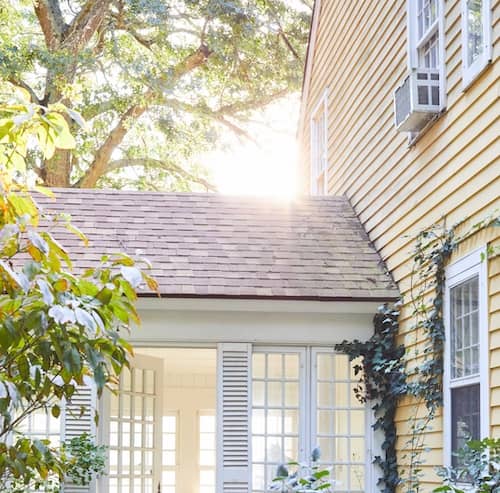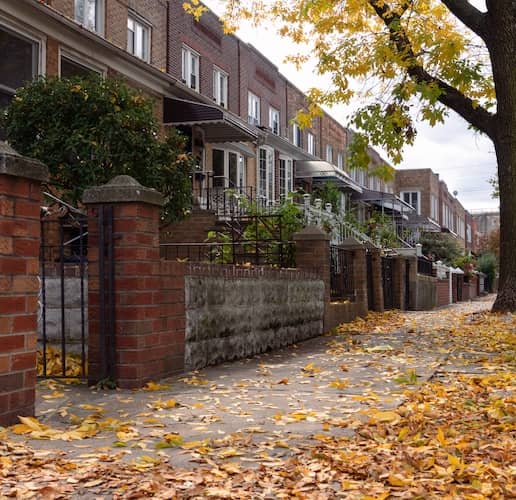Understanding FHA 203(b) loans and how they differ from FHA 203(k) loans
Feb 14, 2024
•4-minute read

Saving for a big down payment is a significant hurdle for many would-be home buyers. But it doesn’t have to be! Home buyers who pursue an FHA 203(b) loan can take advantage of a low down payment requirement to make homeownership a reality.
What is an FHA 203(b) loan?
The FHA 203(b) loan is a popular mortgage loan option for first-time home buyers. But this mortgage product can be used by most buyers looking for a primary residence.
As one type of FHA loan, FHA 203(b) loans are backed and insured by the Federal Housing Administration. The Federal Housing Administration falls under the U.S. Department of Housing and Urban Development, also known as HUD.
Although this is a government-backed loan, you’ll borrow the funds directly from an FHA-approved lender. These lenders can offer 15- or 30-year mortgages to buyers that come with relatively low interest rates and less strict credit requirements.
The primary draw of an FHA 203(b) loan is the low down payment requirement. You might be able to close on a home with as little as 3.5% down, allowing eligible borrowers to finance 96.5% of the value of their home.
Who is eligible for an FHA 203(b)?
If you are considering an FHA 203(b) home loan, here’s a look at eligibility:
-
First-time home buyers: As a first-time buyer, the low down payment requirement is especially helpful.
-
Real-estate investors: Investors can purchase a property with this loan, but they’ll have to make the property their primary residence for at least one year after closing.
- Current homeowners: If you’ve already gone through the home buying process once, the FHA 203(b) loan is still a good option if you are planning to sell your home and buy a new one. It will also work for current homeowners looking to refinance their home and pay for renovations.
If you aren’t planning to live in the property, this is not the right type of loan for you, as it must be used as a primary residence.
FHA 203(b) requirements
To qualify for an FHA 203(b) loan, you’ll need to meet specific guidelines set by the Federal Housing Administration. Here are the checkpoints to meet if you want to qualify:
- 5% down payment: In addition to standard FHA qualifications, a minimum down payment of 3.5% will need to be saved up for single family mortgages.
- 580 credit score: While the FHA requires a minimum score of 500, most lenders require a higher credit score to obtain this type of loan. Rocket Mortgage® requires a minimum credit score of 580.
- DTI of 57% or less: Lenders look at your debt-to-income ratio (DTI) to see what other financial obligations you have on your plate.
- Property must be within FHA loan limits: Loan limits vary based on your location. But as of 2025, for one-unit properties, the “floor” and “ceiling” FHA maximum mortgage limits are $541,287 and $1,249,125, respectively, in most of the country.
- One- to four-unit structures only: The property can only have up to four units. Single-family homes, duplexes, triplexes and quadplexes are examples of what you can purchase with an FHA 203(b) loan.
- Mortgage insurance: You have the option to pay the upfront mortgage insurance premium of 1.75% of the loan amount at closing, or you can finance mortgage insurance premiums into the loan. Keep in mind you’ll also be responsible for paying an annual premium.
The requirements to obtain an FHA 203(b) loan are less stringent than a conventional loan. That’s because the government promises to cover the lender’s losses if you default on the loan.
If you are unable to meet these requirements, work on improving your financial picture before starting your home search. For example, try boosting your credit score or paying off debts to lower your DTI.
FHA 203(b) appraisal requirements
As with all home loans, the home will need to be appraised by an FHA-approved appraiser.
Of course, an FHA appraisal will determine the value of the home. But additionally, FHA-approved appraisers have a specific process to ensure that the home meets the FHA’s minimum property standards.
The minimum property standards require that the home is structurally sound with no health or safety hazards.
FHA 203(b) vs. FHA 203(k)
While an FHA 203(b) loan is primarily used for move-in ready homes, another type of loan, known as the FHA 203(k) loan, exists to assist home buyers who are purchasing a home in need of significant repairs or modifications.
A home would need at least $5,000 in essential structural repairs and additions to qualify for a standard 203(k) loan. The total value of the property must still meet the FHA mortgage limit for the area. So, those looking for a fixer-upper that could be a diamond in the rough should consider FHA 203(k) loans.
Keep in mind that FHA’s Limited 203(k) program will only allow you to finance up to $35,000 in repairs, improvements or upgrades and has no minimum amount requirement. Rocket Mortgage does not offer FHA 203(k) loans.
If you want to avoid making major renovations to a home before moving in, an FHA 203(b) loan is one type of loan and buying program to consider.
The bottom line
An FHA 203(b) loan is an attractive option for many first-time home buyers, as well as real estate investors and current homeowners who are selling their home and buying a new one. It’s also a good option for those who are looking to refinance and pay for renovations.
Borrowers have to meet certain requirements before they can successfully obtain an FHA 203(b) loan, including a 3.5% down payment, a credit score of at least 580 for Rocket Mortgage and a DTI of 57% or less, just to name a few.
If you are ready to dive into the home buying process, apply for mortgage approval today.

Sarah Sharkey
Sarah Sharkey is a personal finance writer who enjoys helping readers make informed financial decisions. She lives in Florida with her husband and dogs. When she's not writing, she's outside exploring the coast.
Related resources

7-minute read
FHA loans in New York
Explore FHA loan options to buy a home in New York state. Learn about all the requirements, including those related to credit and income, to determine if you...
Read more

4-minute read
FHA mortgage insurance removal: A how-to guide
All FHA loans require you to pay up-front and ongoing mortgage insurance premiums (MIP). Learn when and how you can remove MIP from your mortgage payment.
Read more

4-minute read
FHA loan limits: How much can you borrow in 2026?
FHA loan limits are designed to cap how much you can borrow with an FHA loan. Learn more about how these loan limits work and what the limits are for 2026.
Read more